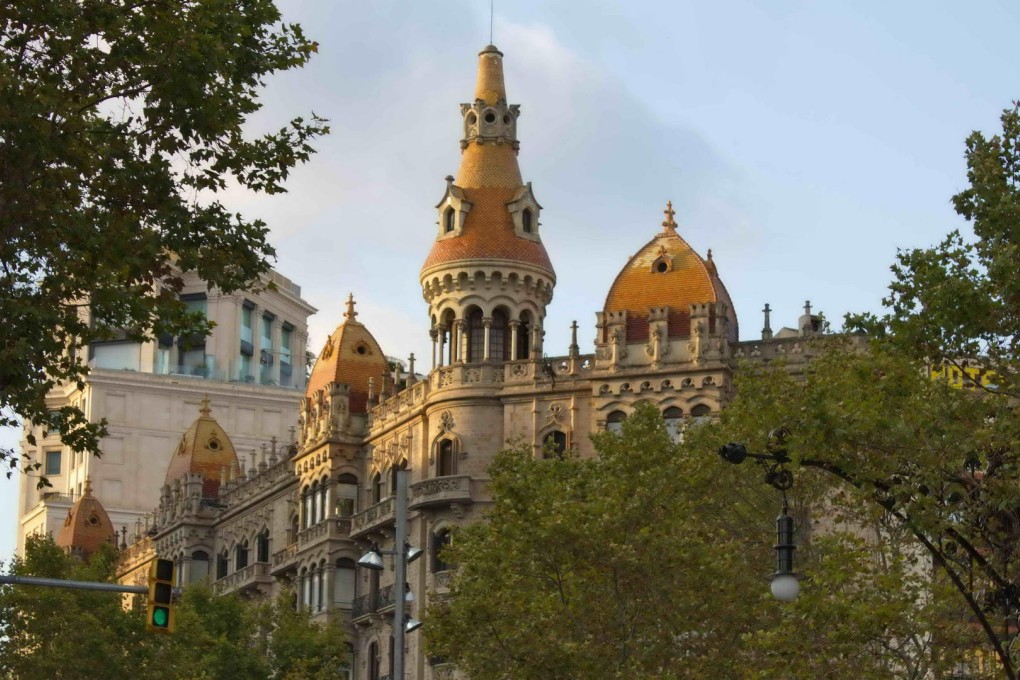Hotel Casa Fuster, once Barcelona's most luxurious residence
Keith Mundy

Yes it does, and this hotel began life in 1908 as the most expensive house in Barcelona, the first in the Spanish city to be faced in marble, commanding a position at the top of a new and extremely elegant avenue called Passeig de Gracia. A landmark of Barcelona's industrial-boom days, when the city expanded greatly, Casa Fuster was a prominent example of modernisme.
Well spotted; it's certainly not. Confusingly, " modernisme" is the Catalan word for art nouveau and has nothing to do with modernism. Barcelona was one of the leading sites of the art nouveau movement, its great name being Antoni Gaudi. Ring a few bells? Casa Fuster was built by another leading Catalan architect, Lluis Domènech i Montaner, who was renowned for an art nouveau style far more restrained than that of the extraordinary Gaudi, who was in a class of his own.

The building was commissioned by a wealthy Majorcan named Mariano Fuster i Fuster as a gift for his wife, Consuelo Fabra i Puig, and called Casa Fuster. Here the couple lived in five storeys of designer luxury and held grand society receptions in the ornate ground-floor salon. Unfortunately, all this cost a fat packet of pesetas to run, and the Fusters had to sell their home in the 1920s.
In 2004, after many intervening adventures, including playing host to a fashionable cafe in the 40s and a dance hall in the 50s before falling into disrepair. Bought by Spain's Hoteles Center group, it underwent a lavish conversion and reinvention, emerging as one of Barcelona's premier luxury hotels.

Eclectic. Modern design elements and retro touches have been integrated into the original structure. The lobby's art nouveau shell of black mosaic floor and fluted pillars (above) has been updated with post-modern flourishes, the upgrade having been taken to Almodovar-esque extremes in the adjacent lounge, while dark colours and subtle modern design help create tranquil guest rooms.
